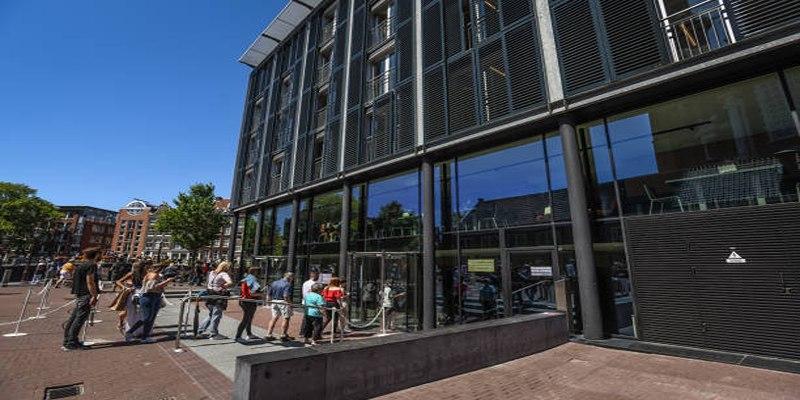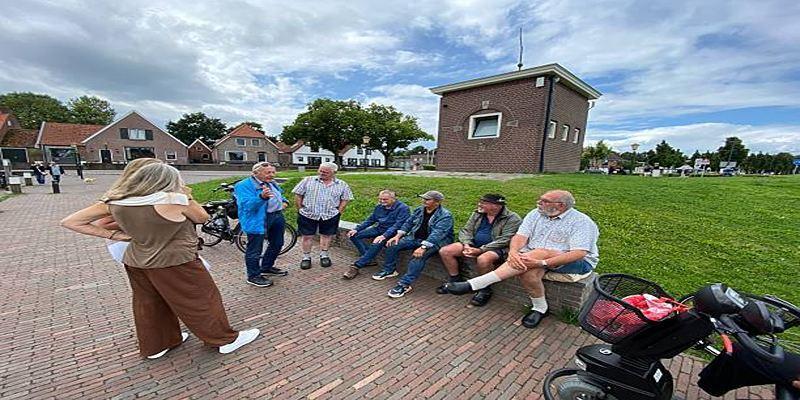One of the most rewarding and enjoyable traveling styles is to search a metropolis with a crowd. An organized tour of the city guarantees smooth organization, maximizes sightseeing and leaves behind beautiful memories to be shared. This is the guide that will ensure that your group tour is not only memorable but also free of stress and organizes tips and strategies that would ensure the tour is stress-free and enjoyable.

A group tour is best suited when the planner takes the singular interests of the group into matters, but still respecting the choice of individual preference.
Begin by getting clues on the demographics of the group. Do you have in mind students who just want to study about the historical things, or a group of employees in the company who just would like to spend a time together and grab a bit of time together, or the friends just would like to see something different, or together? Everything between the types of a group will have the expectations.
To give an example, a student might enjoy a more structured and informative itinerary, whereas friends might enjoy more time of free and informal activities. Another factor will be on accessibility. Make sure that the sites of interest and ways of getting around the city are accessible to people of every age and with varying mobility capabilities.
Not every city is an ideal destination to take a group tour, and the selection of the places can break or make it. An excellent city to visit as a group should provide multiple site worth seeing, efficient transportation resources and a well-structured and comfortable environment.
Factors to consider in selecting the city include factors like accessibility to the travel. International airports, accessible rail services, or cheap buses serve as a bonus since the participants will find it easier to get together in the city without difficulties. Also, consider the size of the city, whereas big metropolitan places are impossible to exhaust, smaller cities might be more intimate, not overpowering.
The time is also a very important factor. Urban centers are also renowned at specific periods of the year when certain seasons are in full swing with festivals, cultural activities or scenic beauty. To put it in rough terms, going to Kyoto in spring when cherry trimmings are in blossom, Prague in winter during Christmas market, and so on and so forth, do not do it ordinary at all, makes the office relocation seem extraordinary.
Any group city tour is based on an itinerary. It is maximally important to develop a strategy that will combine order and elasticity. Strict schedule will make participants weary whereas excess free time will render them disinterested.
Guided tours, cultural and enjoyable experiences will be combined to ensure that each person is kept active throughout the time. An example of this might be a guided walking tour of old quarters in the morning, free independent visits to museums afternoons or shopping wards and social cultures in the night, like a common performance or dinner.
Fluidity is also necessary. All participants might not be keen in all the activities. Through optional components, like exploring a local gallery, participating in a local workshop or riding a scenic bike tour, you give your participants the choice of what they are most excited about.
Money tends to have a final say in the feelings of the tour amongst participants. A budget organized properly is professional and it will not result in a misconception. Needs to list all the major expenses when making the budget like transport, accommodation, meals, and entry tickets.
Minor costs such as the cost of the bottled water, photographs of groups, and specific guide fees should not be ignored because they may create an obsession. Transparency plays a pivotal role, i.e. give the participants a clear profile of what will be included in the package and what they might have to pay out of pocket.
Seek ways to minimize spending and not to make sacrifices in quality. In most cities, there are group discounts on attractions, transport media or performances. Block booking accommodation or travel, also tends to save money.
The attitude of accommodation can influence the mood and energy of group a lot. A central place of location where the key tourist attractions are near or where good public transport is frequently accessible makes it convenient to move as well as save time.
Safety and comfort can not be negotiated. The rooms must be tidy, sufficient in size and safe. With larger groups, we would consider properties with shared places where members can socialize and create a feeling of camaraderie. Depending on the type of group and budget, a hotel, serviced apartment or hostel where the group is given their own section may be appropriate.
It will be necessary to travel efficiently around the city so as to make the tour timely and pleasant. Your means of transportation must have a balance between ease, affordability, and experience.
On a regular basis, large groups are better off with private buses that are reliable and comfortable allowing everyone to remain together and arrive at the right time. In smaller or more adventurous groups, transit passes are a need simultaneously offering a more economical choice, as well as a genuine local experience.

Professional guides can elevate a city tour from ordinary to unforgettable. Their local knowledge, storytelling skills, and ability to provide context transform simple landmarks into meaningful experiences.
Guides also help with logistical coordination. They can navigate groups smoothly through crowded attractions, manage tickets, and ensure that schedules are maintained. In addition, their familiarity with the city often reveals hidden gems—charming alleyways, family-owned eateries, or artisan shops—that most tourists would miss on their own.
A group city tour is more than just a sightseeing trip; it is a carefully orchestrated experience that blends planning with spontaneity, logistics with creativity, and structure with connection. By understanding your group, choosing the right city, crafting a thoughtful itinerary, and preparing for the unexpected, you create the foundation for a seamless journey. Adding thoughtful touches such as engaging guides, interactive activities, and post-tour memory sharing ensures the experience is not only smooth but also deeply meaningful.
 TOP
TOP
Curious about when to claim your Social Security benefit? Learn how age, health, income, and other personal factors influence this important decision and shape your retirement future
 TOP
TOP
The joys of spontaneous travel with tips for unplanned adventures, packing light, and connecting with locals for unforgettable experiences.
 TOP
TOP
Discover thrilling day trips near Cape Town, featuring stunning landscapes, cultural experiences, and adventure for every traveler.
 TOP
TOP
Discover the truths and misconceptions about medical research studies in this insightful article.
 TOP
TOP
The benefits of outdoor activities for improving physical and mental well-being.
 TOP
TOP
Discover the truth about cold weather and its link to sickness in this science-based article.
 TOP
TOP
Identify emotional clutter and discover practical ways to declutter your mind for clarity and peace.
 TOP
TOP
Debunking 7 common myths about Alzheimer’s and dementia for clearer understanding.
 TOP
TOP
Untreated GERD can cause esophagus damage, Barrett’s esophagus, dental erosion, and cancer. Learn symptoms, risks, and why early treatment matters for health.
 TOP
TOP
Aphantasia affects mental imagery, memory, and creativity. Explore its causes, cognitive impacts, coping strategies, and real-life adaptations for navigating life without a mind's eye.
 TOP
TOP
Mental health shapes our well-being, productivity, and equality. Learn why it matters for everyone and discover ways to build stronger support systems.
 TOP
TOP
Learn to identify whether your eyelid bump is a stye or a chalazion, understand the causes and symptoms, and explore effective treatment options for better eye health and comfort.